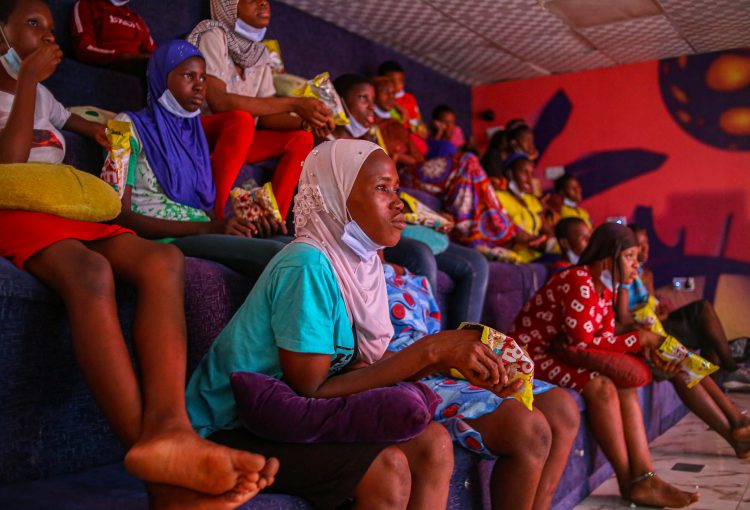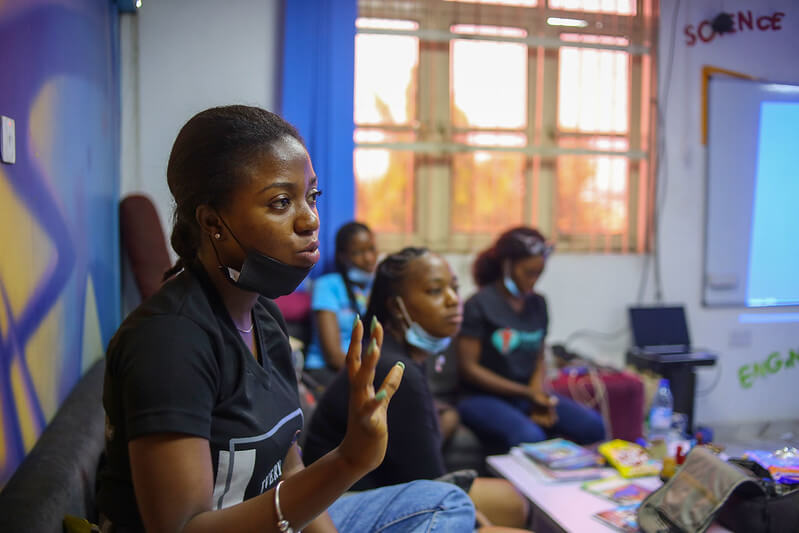Our Medical Team and our incredible volunteers in the Field Management Team volunteers embarked on a 4-hour session Sexual and Reproductive Health (SRH) outreach with some of our beneficiaries at Makoko to discuss the importance of SRH in young and adolescent women. The team, led by our Programs Manager, Ella Togun, ensured that the session was fun but most importantly informative.
Sexual and Reproductive Health in Nigeria
Nigeria, like most developing countries, lacks a fundamental sexual and reproductive health system due to religious and cultural bias and stigmatization. Sexual and Reproductive Health (SRH) is a fairly new concept in global issues and is beginning to gain new grounds as liberal activities and sexual behaviors remain on a steady rise.
SRH ties goes hand in hand with three core issues: Population, Health and Environment. These three issues are, however, hindered by religion, politics, and sociocultural prejudices. In most developed countries SRH is seen as an integral part of human rights, an indivisible component of universal human rights.
A country like Nigeria, nevertheless, suffers from an immature readiness of the government to implement certain health policies for its people. The prevalent rate of maternal and perinatal morbidity and mortality as well as unsafe abortions and female genital tract malignancies proves that the Nigerian SRH system is internally flawed.
During the outreach, Programs Manager, Slum2School Africa, Ella Togun stated that “this was an important outreach because we’ve had a couple of beneficiaries in the community that has gotten pregnant due to a lack of sex and health education and it disrupted their studies.”


